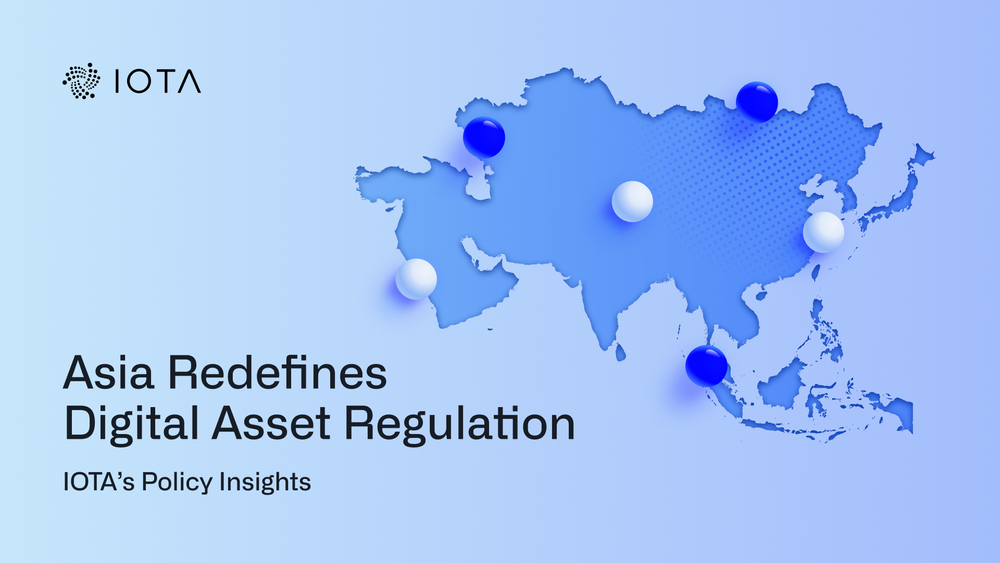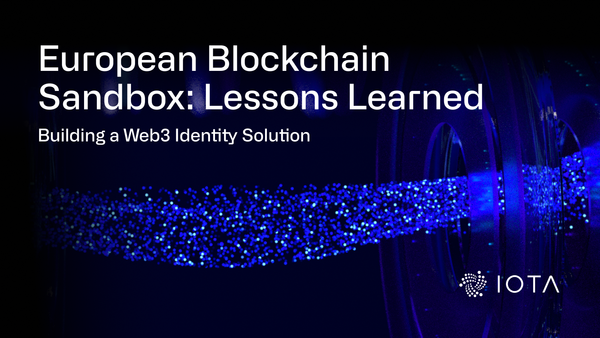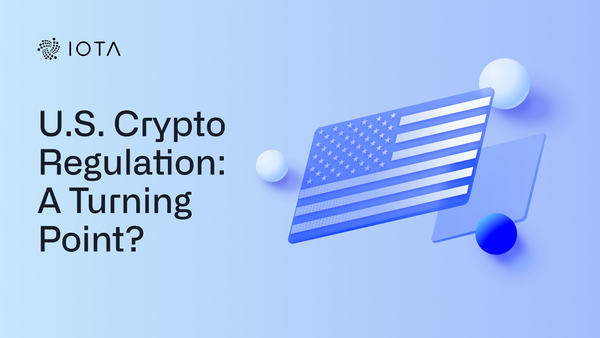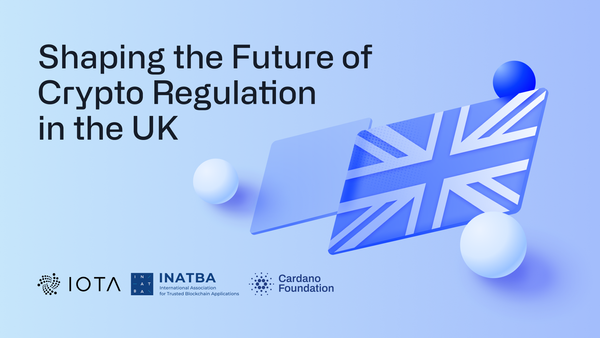Asia Redefines Digital Asset Regulation
IOTA’s Policy Insights
TL;DR:
Asia is modernizing crypto rules with balanced, innovation-friendly oversight. The IOTA Foundation supports this shift, advocating privacy-preserving compliance and risk-based regulation across Hong Kong, Thailand, Malaysia, and South Korea to foster trusted, growth-oriented digital asset markets.
Across Asia, governments are redefining how digital assets fit into mainstream finance. Hong Kong has rolled out a dedicated stablecoin regime, Thailand is drafting rules on exchange-issued tokens, Malaysia is overhauling its digital asset exchange framework, and South Korea is aligning virtual-asset firms with its venture-business ecosystem. Together, these moves mark a decisive shift toward licensed, disclosure-based, and innovation-aware regulation – a balance between protecting investors and enabling growth.
As a non-profit organization, the IOTA Foundation’s guiding principle is to create positive global impact through open innovation and responsible technology. Reflecting this mission, we’ve engaged with regulators across Asia by providing constructive feedback on these regulatory developments.
Hong Kong: Concerns about AML Measures for Self-Hosted Wallets
In June 2025, the Hong Kong Monetary Authority (HKMA) issued a consultation paper detailing Anti-Money Laundering and Counter-Terrorism Financing (AML/CFT) requirements for fiat-referenced stablecoins – i.e. a crypto asset designed to keep a stable value by being pegged to a specific fiat currency, like the US dollar.
The proposals followed the passing of the Stablecoin Issuers Ordinance, which introduced licensing for fiat-referenced stablecoins effective August 2025. Among its key provisions, the consultation sought to extend AML/CFT controls to transactions between self-hosted wallets – that is, a digital wallet entirely controlled by the user and not by a centralized party or an intermediary – potentially requiring stablecoin issuers and intermediaries to verify counterparties in all wallet-to-wallet transfers. The regime aims to ensure traceability and curb illicit flows as stablecoin usage grows in both retail and institutional settings.
In our feedback, the IOTA Foundation acknowledged Hong Kong’s leadership in establishing clear standards for stablecoin issuance but cautioned that applying full Travel Rule obligations for transactions involving self-hosted wallets is operationally not viable and conceptually inconsistent with decentralized finance.
Instead, we proposed a risk-mitigation framework based on a tokenized KYC-proof model, involving privacy-preserving, verifiable credentials issued after identity verification. These digital proofs can be cryptographically attached to wallet addresses, allowing institutions to verify a user’s compliance status without collecting or storing personal data. This model preserves user privacy, reduces data liability, and supports interoperability across platforms. We also recommended complementing this with advanced blockchain analytics to detect high-risk behavior patterns, rather than imposing structural restrictions on wallet type. Our solution proposed in the European Blockchain Sandbox points the way to a possible implementation.
Thailand: 90-day Transitional Period for COI Tokens
In July 2025, the Securities and Exchange Commission of Thailand (SEC) released a consultation proposing to lift the blanket ban on Conflict-of-Interest (COI) tokens: i.e., digital tokens issued by an exchange or its related entities for use within their own ecosystem.
Our response to Thailand’s Securities and Exchange Commission focused on the proposal to lift the ban on allowing digital asset exchanges to offer Conflict of Interest (COI) tokens (i.e., ready-to-use utility tokens or cryptocurrencies issued by an exchange or its affiliates to facilitate transactions on their own blockchain) for trading.
The draft regulation would permit exchanges to list such tokens provided they meet strict disclosure, monitoring, and reporting requirements. Exchanges would need to identify “related persons” of token issuers – covering directors, executives, spouses, and affiliated legal entities – and flag COI tokens in the SEC’s reporting system to facilitate ongoing supervision. Existing tokens would have 90 days to meet these obligations once the regulation takes effect. The objective is to enable responsible innovation while preventing insider abuse and undisclosed conflicts.
We welcomed the Thai SEC’s move, viewing the ban on COI tokens as overly restrictive. These tokens often serve utility roles such as reducing trading fees, accessing platform services, or incentivizing user activity. Prohibiting them outright limits user choice and places domestic exchanges at a competitive disadvantage compared to offshore platforms that list and support such tokens openly. Instead of banning them, the focus should be on enforcing disclosure, conflict of interest management, and robust monitoring. This approach would maintain investor protection while allowing responsible innovation.
Malaysia: Protect Market Access by not Excluding Utility Tokens
In August 2025, the Securities Commission Malaysia (SC) proposed wide-ranging reforms to the Guidelines on Recognised Markets, which govern Digital Asset Exchanges (DAXs). The consultation introduced a Liberalised Listing Framework allowing exchanges to list tokens without prior SC approval, while strengthening governance, capital, and operational requirements. Key proposals included raising minimum paid-up capital to RM 15 million (≈ €3 million), mandating stricter shareholder eligibility, and introducing a one-year trading-history requirement before a digital asset can be listed. The SC also sought views on how to treat high-risk tokens such as stablecoins, nascent utility tokens, privacy coins, and meme coins within the liberalised framework.
We supported Malaysia’s push toward a more autonomous and accountable exchange regime but highlighted several areas for improvement. We oppose blanket restrictions on utility and nascent tokens, advocating instead for enhanced disclosure, post-listing monitoring, and independent smart-contract audits. We also recommended that Malaysia develop a dedicated stablecoin framework (similar to those in the EU, Singapore, and Hong Kong) coordinated with Bank Negara Malaysia, to give regulatory clarity to fiat-referenced and algorithmic stablecoins. We also argued that the proposed capital requirement far exceeds comparable thresholds in the EU’s MiCA Regulation (€50k–€150k), creating unnecessary barriers for smaller, innovative exchanges. We urged the SC to adopt a tiered capital model and a risk-based listing approach that evaluates assets by utility, governance, and technical maturity rather than age or trading venue.
South Korea: Venture Businesses Expand to Virtual Assets
South Korea’s government, following the implementation of the Virtual Asset User Protection Act in July 2024, proposed amending the Enforcement Decree of the Special Act on the Promotion of Venture Businesses to include virtual-asset trading and brokerage firms within the scope of recognized venture enterprises. The change would allow such firms to access venture financing, tax incentives, and other benefits reserved for high-growth tech firms. This proposal reflects a broader policy shift: viewing blockchain and digital asset businesses as contributors to Korea’s innovation economy rather than speculative outliers.
We endorsed the proposal, noting that the amendment would help legitimate virtual-asset firms secure funding and foster talent in line with Korea’s broader technology agenda. We emphasized that the digital asset sector now intersects with AI, decentralized finance, and supply-chain applications, areas where Korean startups have global potential. Recognizing crypto firms as venture businesses ensures they are assessed on innovation and operational merit, encouraging responsible entrepreneurship and attracting capital and talent. We believe these measures will position Korea as a regional leader in responsible blockchain adoption.
IOTA’s Guiding Regulatory Principles
Across these engagements, our recommendations share a consistent foundation:
- Balance: Strong safeguards that don’t suppress innovation.
- Innovation-Friendly Regulation: Frameworks that accommodate both startups and established enterprises – don’t block out startups with non-essential compliance burdens.
- Global Alignment: Consistency with industry best practices and evolving international standards.
- Risk-Proportionate Oversight: Addressing real risks through disclosure, monitoring, and governance, not blanket bans - utility tokens are an essential part of the market.
As Asia’s regulatory landscape develops, the IOTA Foundation will continue to support open, interoperable, and privacy-preserving solutions that connect innovation with compliance, helping build digital asset markets that are both trustworthy and transformative.
Follow us on X to keep up to date with our regulatory advocacy.




